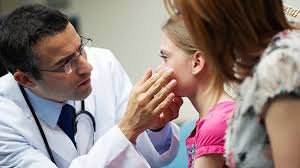Concussions are a common injury, but many people don’t know how to approach treatment for them. There are several approaches that can be taken to ensure a safe and speedy recovery, and this blog post will provide you with all the information you need to make an informed decision when it comes to concussion treatment. We will look at the signs and symptoms of concussions, the recommended treatments, and some tips on how to prevent a concussion in the future. With this knowledge, you can ensure your loved ones stay safe while providing them with the resources they need for a quick and full recovery.
What is a concussion?
A concussion is a type of brain injury that occurs when the head is suddenly and forcefully hit. Concussions can also occur when the head is violently shaken. Concussions are usually caused by a blow to the head during contact sports, such as football, hockey, and boxing. However, they can also result from car accidents and falls.
Most concussions are mild and do not require hospitalization. Most people who suffer a concussion will recover fully within a few weeks with rest and proper care. However, some people may experience lingering effects, such as headaches, dizziness, and fatigue, for months or even years after the initial injury. In rare cases, concussions can lead to serious complications, such as seizures, paralysis, or even death.
Symptoms of a concussion
If you’ve recently suffered a blow to the head, it’s important to be aware of the symptoms of a concussion and seek medical attention if necessary. Concussions can range in severity from mild to severe, and can occur without loss of consciousness.
Common symptoms of a concussion include:
-Headache
-Dizziness or lightheadedness
-Nausea or vomiting
-Fatigue or drowsiness
-Blurred vision
-Sensitivity to light or noise
-Balance problems or difficulty walking
-Memory problems or difficulty concentrating
-Confusion or feeling “foggy”
If you experience any of these symptoms after a head injury, it’s important to see a doctor right away. A concussion is a serious injury and can have long-lasting effects if not treated properly.
How to treat a concussion
If you or someone you know has recently suffered a concussion, it is important to seek medical attention and begin treatment for concussion as soon as possible. A concussion is a type of brain injury that can occur after a blow to the head or body, and can range in severity from mild to severe.
Symptoms of a concussion may include headache, dizziness, nausea, vomiting, fatigue, confusion, difficulty concentrating or remembering, sleep problems, and mood changes. If you or someone you know experiences any of these symptoms after a head injury, it is important to seek medical attention right away.
There is no one-size-fits-all approach to treating a concussion. The best course of treatment for concussion will vary depending on the individual’s symptoms and how severe the concussion is. However, there are some general principles of concussion treatment that can help promote healing and recovery.
Rest is critical for recovering from a concussion. This means physical and mental rest. Avoid activities that require mental concentration or physical exertion. Get plenty of sleep at night and take naps during the day if needed. give your brain time to heal.
Stay hydrated by drinking plenty of fluids throughout the day. Avoid alcohol as it can interfere with recovery.
Eat healthy foods to help your body repair itself and promote healing. Focus on fruits, vegetables, whole grains, lean protein, and healthy fats. Avoid processed foods and sugary snacks which can contribute to fatigue and other symptoms.
When to see a doctor for a concussion
If you think you or someone you know may have a concussion, it’s important to see a doctor as soon as possible. A concussion is a serious brain injury that can have lasting effects if not treated properly.
If you experience any symptoms after a head injury, it’s important to see a doctor right away. Concussions can be difficult to diagnose because symptoms may not appear until days or weeks after the injury. An evaluation by a trained medical professional is necessary to determine if you have a concussion and to develop a plan for treatment and recovery.
Prevention of concussions
There are several measures that can be taken to prevent concussions, particularly in young athletes. Some of the most effective measures include:
– Wearing appropriate protective gear when participating in sports or other activities where there is a risk of head injury
– Avoiding dangerous activities that could lead to a head injury
– Learning proper techniques for participating in sports and other activities safely
– Following all safety rules and guidelines when participating in any activity
If you or someone you know has suffered a concussion, it is important to seek medical attention immediately. Concussions can have serious long-term effects if they are not properly treated.
Conclusion
Concussions are a serious injury that needs to be taken seriously. If you or someone you know has suffered from a concussion, it is important to seek proper treatment and follow the instructions given by your doctor for optimal recovery. With the right information and treatment, most concussions can resolve quickly with few long-term effects. We hope this article has helped equip you with what you need to know about concussion treatment so that you can start on the road to recovery as soon as possible.



